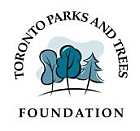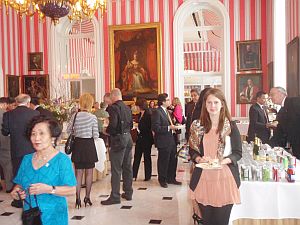
Pages in this Folder:

Related Folders:
See also Department Site Map
This website was developed in 2001 thanks to a grant from the Toronto Parks and Trees Foundation.

Notice: This web site is an information post and a forum for the community that uses the park, and to some degree for the surrounding neighbourhood. The editor of the web site reserves the right to post parts or all of any letters sent to the web site. If you do not want your letter posted, please let us know when you e-mail us, and we won't post it.
Comments?
For the basics, see
- Website & Privacy Policies
- How To Get Involved
- The Role of the Park
Search options:
Department Site Map
Custodians:
The Caring Canadian Award:
Jutta Mason
One day in January 2012, I got a call from the federal government – my display screen wasn’t clear about what division. I picked up the phone, wondering if we had a tax problem. But it was a woman with a rather formal voice, saying she was calling to let me know that I was getting a “Caring Canadian” award. Would I be able to come to Ottawa in April and attend the ceremony? I could bring one guest.
At the time the bureaucratic troubles that we had been experiencing for years at Dufferin Grove Park were intensifying. So I was not feeling even slightly like a Caring Canadian, more like an Exasperated Canadian. On the other hand, a teenage cousin of mine from Berlin was scheduled to arrive in March for a two-months’ stay, to practice her English. I had been racking my brain for ways to keep her busy, and a visit to the Governor General’s house in Ottawa seemed like a possible adventure. So I accepted with gratitude.
Cousin Sophia arrived, and three weeks later we were on the road to Ottawa, with our package of instructions. We were to stay at the Lord Elgin Hotel. Caring Canadians are not anywhere near in rank to the Order of Canada, but the vice-regal office’s honour routine is still impressive. When we arrived at the hotel in the afternoon, we went to the front desk to register. The desk person looked at the register and said “congratulations.” The parking attendant who came to park the car said “congratulations.” When we went into our room, two cleaners in the hallway said “congratulations.” When we went to retrieve my fold-up bike from storage -- and the storage-locker attendant said “congratulations” -- my young Berlin cousin began to giggle and couldn’t stop. And so it continued during our two-day stay.

Rideau Hall, where the governor-general lives
We rented a second bike for my cousin and spent the first evening biking around Ottawa. The next day right after breakfast and congratulations we repacked our suitcases for storage on the main floor, and then the Caring Canadians and their guests boarded a special bus for Rideau Hall. The bus driver told me that transporting groups of honoured guests from various hotels to governor-general ceremonies had been his full-time job for fifteen years.
None of us knew each other, of course. But we had all been given a booklet with a page for each of us (twenty-eight), with a photo and a description. Almost half of the recipients were Francophone, including some from western Canada. There were a few youth, a few quite elderly people, one First Nations man who had been flown down from the north, a few people from Ottawa – including one man whose house was half a block from Rideau Hall. Most of the rest of us, from all over Canada, were in late middle age and had done a variety of things without being paid. Some people had raised money for cancer, some people had entertained sick people in hospitals with music or pet dogs, one man had done charity magic shows, some people had established hospices or services for old people in rural areas, one person – me – had made a park “bustle with activity,” several people brought Christmas presents to poor children, and so on. We were a cross-section of mostly non-urban, very ordinary people who filed into the front foyer of the government house looking a bit like deer in headlights. It seemed to me that no one there was sure why they in particular had been selected to represent ordinary Canadians – had we been entered into an obscure contest without our knowledge?
But there we were, and we had to learn our ceremonial roles. Our guests were taken off into a separate room where they were given snacks and instructed on what guests were to do. The award recipients were taken to a different room with little gilt chairs, and a red carpet laid out in exactly the same way as in the hall of ceremonies. Each of us had to rehearse how we would approach the governor-general, turn to face him while he spoke, shake his hand, take the leather award folder he handed us, turn toward the photographer, pause and smile until we got a nod, and then go back to our chairs. We were to say no words except “thank you.”
After a while the governor-general’s wife came in and said how pleased and proud of us she was, and then there was a group photo with her in the middle. Then some coffee and cookies, a bit of time for chatting, and after another half hour we were lined up to go in.
As we walked down the little hallway we could hear classical music, which turned out to be performed by a little military-uniformed string orchestra positioned right where we came in. The room had a considerable audience, smiling and nodding and clapping politely, and we were escorted down the broad middle aisle and to our seats at the front. I couldn’t see my cousin. There was a bank of television cameras on one side, and they filmed the governor-general saying some things about how generous Canadians are in caring for each other. Then we went up each in our turn and back to our seats as rehearsed. A few times when the governor-general was reading out the achievements of one or another recipient, he seemed to find the text a bit confusing. He stumbled a bit, for instance, over some lady getting a couple of bake ovens put into a Toronto park. (So?) But he gamely read out each citation, and the audience applauded twenty-eight times. The cameras rolled the whole time, and then all the people there, recipients, guests, audience, camera crew, and the orchestra, got up and went into the great hall for lunch.

my cousin Sophia at Rideau Hall
The hall was beautifully set up with many round tables laden with different kinds of delicious hors d’oeuvres, soups, sandwiches, salads, fruit, and little specialty pastries. There were large flower arrangements in the middle of some of the tables. An enormous full-length portrait of a young Queen Victoria dominated the room. Waiters in black walked around offering glasses of wine. People filled up their plates, and stood in little groups chatting and networking.
I met a nice woman I knew years ago in Toronto. She said she was doing data entry now in a federal office in Ottawa. She had come to the ceremony because, the afternoon before, a memo had gone out to government staff, urgently inviting anyone with time to come to a ceremony that might otherwise be seriously under-attended. They needed bodies in the seats, and in return the staff would get to eat a fine lunch at Rideau Hall, and maybe have a chance to chat with other government workers from other departments.
So that explained it: most of the audience were from central casting, smiling and clapping for the ceremony. Just as we Caring Canadians were, maybe.
I found my cousin Sophia, and she said she had been kindly put in the charge of some of the older guests, who had asked her about Berlin and helped her practice her English. After the government workers left to go back to their offices, the rest of us got to stroll through the many public rooms in Rideau Hall, with guides in every room to tell us about the history of the furnishings, and the people in the portraits. Some tourists from China tried to join the tour, but they were turned away and told this was a private event.
In mid-afternoon the bus came and took us back to the hotel, where our bags were waiting behind the front desk, and Sophia and I left. We went on to Montreal, so that I could show her around a bit, and then drove back home.
In the weeks that followed, Sophia did various tasks at the park. She did kitchen duty at Friday Night Supper, made a detailed map of benches and tables that needed fixing, dug up the hard-packed sand under the playground climbers to loosen it, worked on puppets for a park festival, and other odd jobs. The small research foundation we had started at the park had a little money to pay her – everyone else was getting paid, and Sophia was a good worker, even as she polished up her English. In the last weeks of Sophia’s stay that money was running out, though. But then an envelope came in the mail, from the governor-general’s office. It held a cheque for $760, without any covering letter. The cheque stub said “reimbursement for travel to Ottawa.” I guess if two people were flying in from Toronto, the government would have reimbursed their return air fare, and for fairness we got the same amount. After I took out the money for the gas for the four-hour car trip, there was more than enough left to pay Sophia for the rest of her work at the park, and she went back to Germany with good English and a full wallet.
Meantime, I and others struggled (in vain) against the continuing dismantling, by Parks and Recreation management, of the neighbourhood commons that had grown up in the park over the previous twenty years. Then in September 2016, I got a package from the governor-general’s office saying that the Caring Canadian award was being renamed and would now involve a medal, and that they'd be sending me one under separate cover. The package contained a glossy booklet showing where, on a dress or a suit, government-issued medals and insignia ought to be worn on formal occasions.

I’m done at the park now. But if a time comes when the bureaucracy loosens its grip again, maybe all the people who participate in the next version of the park as a neighbourhood commons could take turns wearing the medal, pinned to the right spot on their clothes. I’d be happy to make it available, plus a few others I got. The governor-general's announcement says "The Medal is awarded to individuals only" but that's got it backwards. Jane Jacobs used to tell the recipients of the Jane Jacobs Prize “good changes are not made by one person, they can only be made by a lot of people working together.” Indeed. So the next time a group of park friends manage to get a campfire circle installed or prevent a favourite playground from being dumbed down, each person who helped can get a turn wearing the Sovereign's Medal for Volunteers (the new name). Surely the Queen would approve. Oh Canada!


 Printer friendly version
Printer friendly version